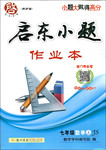
·ÖÎö ÎÄÕ´óÒ⣺ÕâƪÎÄÕÂÖ÷Òª½²ÁËÄãÔõÑù¼ì²âÄãÊÇ·ñ³¬Á¿¹¤×÷£¬ÒÔ¼°³¬Á¿¹¤×÷ÔõÑùµ÷½Ú£®
½â´ð 54Ìâ´ð°¸£ºB ϸ½ÚÀí½âÌ⣮¸ù¾ÝµÚ¶þ¶Î¡¢µÚÈý¶Î¡¢µÚËĶÎCheck your resting heart rate£®Check your emotions£®Check your weight¼ì²éÄãµÄÐÝϢʱµÄÐÄÂÊ£®¼ì²éÄãµÄÇé¸Ð£¬¼ì²éÄãµÄÌåÖØ£®¿É֪ѡB£®
55Ìâ´ð°¸£ºA ϸ½ÚÀí½âÌ⣮¸ù¾ÝµÚ¶þ¶ÎEvery day£¬before you get out of bed£¬take your pulse ÿÌìÆð´²Ç°£¬²âÄãµÄÂö²«£®¿É֪ӦѡA£®
56Ìâ´ð°¸£ºC ϸ½ÚÀí½âÌ⣮¸ù¾ÝµÚÈý¶ÎThe only way out is a break£®Î¨Ò»µÄ·½·¨ÊÇÐÝÏ¢£®¹ÊÑ¡C£®
µãÆÀ ±¾ÎÄÊÇһƪÈÕ³£Éú»îÀàÔĶÁ£¬ÌâÄ¿Éæ¼°¶àµÀϸ½ÚÀí½âÌ⣬×öÌâʱ½áºÏÔÎĺÍÌâÄ¿ÓÐÕë¶Ô ÐÔÕÒ³öÏà¹ØÓï¾ä½øÐÐ×Ðϸ·ÖÎö£¬½áºÏÑ¡ÏîÑ¡³öÕýÈ·´ð°¸£®ÍÆÀíÅжÏÒ²ÊÇÒªÔÚץס¹Ø¼ü¾ä×ӵĻù´¡ÉϺÏÀíµÄ·ÖÎö²ÅÄܵóöÕýÈ·µÄ´ð°¸£®


 Æô¶«Ð¡Ìâ×÷Òµ±¾ÏµÁдð°¸
Æô¶«Ð¡Ìâ×÷Òµ±¾ÏµÁдð°¸
| Ä꼶 | ¸ßÖÐ¿Î³Ì | Ä꼶 | ³õÖÐ¿Î³Ì |
| ¸ßÒ» | ¸ßÒ»Ãâ·Ñ¿Î³ÌÍƼö£¡ | ³õÒ» | ³õÒ»Ãâ·Ñ¿Î³ÌÍƼö£¡ |
| ¸ß¶þ | ¸ß¶þÃâ·Ñ¿Î³ÌÍƼö£¡ | ³õ¶þ | ³õ¶þÃâ·Ñ¿Î³ÌÍƼö£¡ |
| ¸ßÈý | ¸ßÈýÃâ·Ñ¿Î³ÌÍƼö£¡ | ³õÈý | ³õÈýÃâ·Ñ¿Î³ÌÍƼö£¡ |
¿ÆÄ¿£º³õÖÐÓ¢Óï À´Ô´£º ÌâÐÍ£ºÌî¿ÕÌâ
²é¿´´ð°¸ºÍ½âÎö>>
¿ÆÄ¿£º³õÖÐÓ¢Óï À´Ô´£º ÌâÐÍ£ºÌî¿ÕÌâ
²é¿´´ð°¸ºÍ½âÎö>>
¿ÆÄ¿£º³õÖÐÓ¢Óï À´Ô´£º ÌâÐÍ£ºÔĶÁÀí½â
²é¿´´ð°¸ºÍ½âÎö>>
¿ÆÄ¿£º³õÖÐÓ¢Óï À´Ô´£º ÌâÐÍ£ºÔĶÁÀí½â
²é¿´´ð°¸ºÍ½âÎö>>
¿ÆÄ¿£º³õÖÐÓ¢Óï À´Ô´£º ÌâÐÍ£ºÔĶÁÀí½â
Peter | I want to be a teacher when I grow up£®Then I could help to teach in poor villages£®Not many teachers would like to work there because the villages are far and poor£®But I won't mind£®I hope to help the kids there learn more about the outside world£® |
Susan | It's dangerous for blind people to cross the road£®I expect to help them get to the other side of the road safely£®Yes£¬it's a small thing but it means a lot£®Sometimes I might take them to the place they'd like to go to£® |
Jason | A clean and tidy neighborhood is necessary£®I'll help to clean up our neighborhood this weekend£®However£¬only my work isn't enough£®So I'd like to call on more friends to join in the cleaning£® |
Maria | Grandma Li's house is near our school£®She lives alone and often needs help£®Every Sunday I go to her home with my friend Anna£®We help to clean her room£®Do the dishes and tell stories to her£®She's always happy to see us£® |
²é¿´´ð°¸ºÍ½âÎö>>
¿ÆÄ¿£º³õÖÐÓ¢Óï À´Ô´£º ÌâÐÍ£ºÔĶÁÀí½â


²é¿´´ð°¸ºÍ½âÎö>>
¿ÆÄ¿£º³õÖÐÓ¢Óï À´Ô´£º ÌâÐÍ£ºÔĶÁÀí½â
²é¿´´ð°¸ºÍ½âÎö>>
¿ÆÄ¿£º³õÖÐÓ¢Óï À´Ô´£º ÌâÐÍ£ºÑ¡ÔñÌâ
| A£® | What's your name£¿ | B£® | What's this in English£¿ | ||
| C£® | How old are you£¿ | D£® | How are you£¿ |
²é¿´´ð°¸ºÍ½âÎö>>
°Ù¶ÈÖÂÐÅ - Á·Ï°²áÁбí - ÊÔÌâÁбí
ºþ±±Ê¡»¥ÁªÍøÎ¥·¨ºÍ²»Á¼ÐÅÏ¢¾Ù±¨Æ½Ì¨ | ÍøÉÏÓк¦ÐÅÏ¢¾Ù±¨×¨Çø | µçÐÅթƾٱ¨×¨Çø | ÉæÀúÊ·ÐéÎÞÖ÷ÒåÓк¦ÐÅÏ¢¾Ù±¨×¨Çø | ÉæÆóÇÖȨ¾Ù±¨×¨Çø
Î¥·¨ºÍ²»Á¼ÐÅÏ¢¾Ù±¨µç»°£º027-86699610 ¾Ù±¨ÓÊÏ䣺58377363@163.com